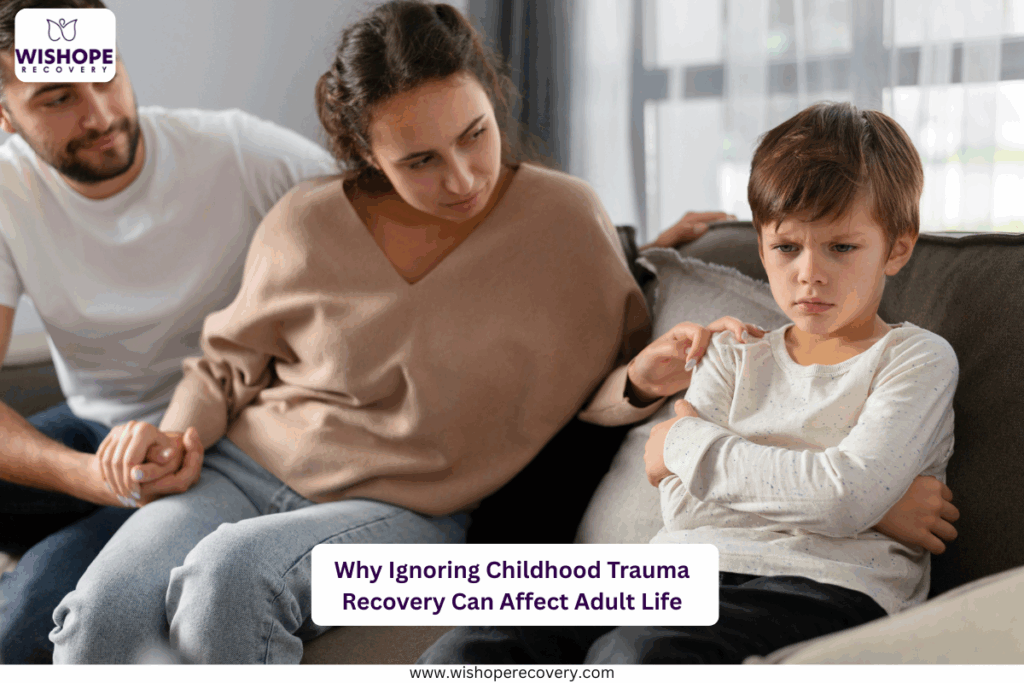While one may state that “child papers eighty-seven” or “get over the trauma”, the extents of those traumas decide how difficult their interpersonal relationships, professional enhancements, and mental health issues would be in their adolescent or adult states. Within itself, childhood trauma recovery, if left without treatment, may do more damage-hence the expectation that everyone should be aware of and deal with childhood trauma as early as possible.
What is childhood trauma recovery?
Childhood trauma recovery is sandwiched between the act of repairing oneself for the trauma inflicted during childhood—addressing this trauma itself, being aware of it and the effects that it has had upon the mind, emotion, and body, and then conducting the necessary healing for it through proper means—and giving a person some kind of empowerment to create healthy coping strategies, manage emotional regulation, and build resilience for their own thriving in adulthood.
Some elements in childhood trauma recovery are:
- Emotional healing, and integrating past experiences
- Therapy to change negative patterns of thought and behavior
- Developing coping skills for triggers and stress
- Forming support systems, and places of safety
- Self-awareness and personal growth
Understanding Childhood Trauma
Childhood trauma can occur from various sources:
- Physical, emotional or sexual abuse
- Neglect or abandonment
- Witnessing domestic violence or substance abuse
- Loss of a loved one at an early age
- Bullying or exclusion from peers
- Trauma is cumulative, and even “less significant” trauma can have compounding effects on brain development, emotional regulation, and coping abilities.
The Impact of Childhood Trauma Neglect on Life as an Adult
Cases may materialize through adult life when a trauma is never really dealt with:
- Ailments of the Mind: Increased risk for depression, anxiety, PTSD, and mood disorders.
- Relationship Issues: A person is unable to trust others or form relationships, or just keep them for a considerable period of time.
- Substance Abuses: They are more likely to use drugs or alcohol as a coping mechanism.
- Low Self-Esteem: It is the continued feeling of being not good enough-guilt or shame.
- Physical Problems: Ongoing stress may cause some physical condition, such as a heart attack, obesity, or an auto-immune disorder.
- Life and Work Problems: Could have trouble with stress management, or setting or completing goals, or just carrying out successful executions.

Why it is Important to Recover from Childhood Trauma
Resolving trauma early can aid individuals in:
- Establishing healthy coping skills
- Developing their emotional intelligence and resiliency
- Supporting their relationships with family, friends, and intimate partners
- Improving their psychological and physical well-being
- Achieving personal fulfillment and success in the workplace.
Steps Toward Recovery from Childhood Trauma
Recovery is a process, but the following steps give a methodical approach to the recovery:
- Getting a professional: I can name some professional therapists who do trauma-informed care work who might help you during the period of healing.
- The various kinds of therapies: You will want to consider such things as cognitive behavioral therapy (CBT), EMDR, or dialectical behavior therapy (DBT).
- Support systems: Friends and family members or support groups will give you understanding and encouragement.
- Mindfulness and self-care: Intervention techniques can include meditation, journaling, or relaxation exercises to help in emotional management.
- Education and Awareness: To some degree, trauma awareness, and more specifically trauma you are aware of, helps to reclaim the power to heal on your own.
Frequently Asked Questions
Q1: Can an adult still recover from childhood trauma?
A: Yes, absolutely. But the best option is for trauma to be addressed as early as possible; however, many adults come out of a trauma with significant benefit from therapy and trauma-informed approaches.
Q2: How long does childhood trauma recovery take?
A: Recovery is individual and can vary from person to person. Recovery can take months and even years dependent upon the extent of the trauma and the type of support received.
Q3: Is trauma recovery only about talking about the trauma?
A: While talking therapy can be a part of recovery, recovery can include much more such as therapy, mindfulness, EMDR, group support, and lifestyle changes to support the person as a whole.
Q4: Can ignoring the trauma in turn affect my parenting?
A: Yes, ignoring the trauma can impact how the trauma affects attachment styles, communication, and emotional responses, which is ultimately how we raise children.
Q5: How can my family member support someone recovering from trauma?
A: By being supportive, understanding, patient, and encouraging connecting with available resources.
A closing statement
It is perhaps something that does not sit well with us: childhood trauma ignored is secreted away in some form, manifesting itself while probably affecting adult life, mental health, personal relationships, or initiation of the whole well-being mood. Through pertinent action-aided therapy, support systems, and self-care-allow the disruption of trauma cycles, with empowerment accorded to live a healthier and more meaningful life. At WisHope Recovery, we provide trauma-informed care to help teens and adults move towards resilience, emotional healing, and recovery.

